Ulrich Schnauss - Interview
by Anthony Strutt
published: 13 / 2 / 2010
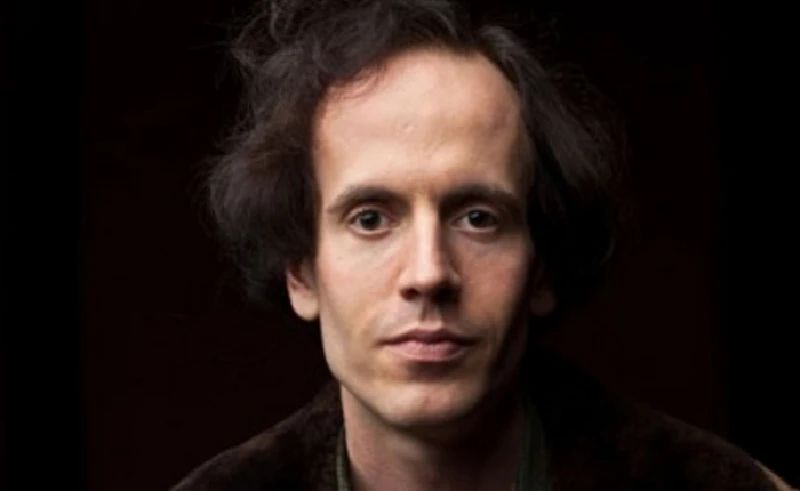
intro
With an album of his remixes just about to be released, German shoegaze-influenced musician and producer Ulrich Schnauss talks to Anthony Strutt about his influences and career
Ulrich Schnauss was born in Kiel in Germany in 1977. Enthusiastic about music from an early age, he moved to Berlin in 1996 where he began to release electronic music under the pseudonyms of View to the Future and Ethereal 77. With View to the Future he released an album, 'The 7th Seal', in 1997 and with Ethereal 77 another album, 'Landscapes', in 1999. He also put out under each moniker various 12" EPs. In 2001 Schnauss started releasing material under his own name and there have since then been another three albums of solo instrumental electronic music, 'Far Away Trains Passing By' (2001), 'A Strangely Isolated Place' (2003) and'Goodbye' (2007). Heavily influenced by the early 90's shoegaze genre, and one of the pivotal members in that genre's successor, the nu-gaze movement, Schnauss has also played keyboards in the UK band Longview and has recently joined Engineers. As well as working as a keyboardist and musician, Schnauss is also a successful producer and remixer. An album of his remixes, 'Missing Deadlnes-Selected Remixes', which includes reworkings of tracks by former Ride front man Mark Gardner, Howling Bells, Asobi Seksu, Rachel Goswell and Mojave 3, is just about to be released on Rocket Girl. Ulrich Schnauss spoke to Pennyblackmusic about his career. PB: At what age did you first really discover music and when did you decide that you wanted to create your own? US: As far as I can remember music was always my main interest. As a child I listened to my parents’ record collection (a lot of jazz and fusion from the 70s) and played their piano. At first I was just trying to come up with interesting noises, but later on from the age of seven I was allowed to take piano lessons which enabled me to play more melodic stuff. I didn't have a very peaceful childhood. There always was a lot of violence and aggression around. Music was a great way to escape from reality and still is to this day. I don't think I ever consciously made the decision "I want to be a musician" - it just seemed obvious to me that that would be the only thing I could and should do. Around the time Acid House appeared I started to develop my own taste in music. Even quite mainstream radio stations started playing underground dance records (like Kevin Saunderson and S-Express) and I couldn't get enough of it. Listening to the British Forces' Radio Station was a great way to find out more about this kind of music and other less mainstream sounds in the following years. PB: Your first two bands were Ethereal 77 and View to the Future. How would you describe this early work of yours? US: When I started recording electronic or sequenced music I did stuff that was heavily influenced by the sound of Good Looking and its affiliated labels - what they now call "atmospheric drum&bass" essentially. The Ethereal 77 and View to the Future albums are all about that. I don't think my music back then was ever particularly good or original, but it was helpful to work within a certain, clearly-structured frame as a learning experience. PB: You have said that you started by playing your parents' piano. Would you have started on guitar if that was at hand or have you never been interested in playing that instrument? US: I wasn't that interested in guitar, but I would've loved to learn drums. My parents didn't allow it though. I don't think there would've been enough money for a drum kit either. PB: What attracted you to Shoegaze music and electronica in the first place? US: If you use music to escape, then quite naturally you'll be attracted to sounds that have a psychedelic, almost meditative quality. As far as songwriting based music goes, the bands that were connected to the "shoegaze" tag in those days definitely had the most dreamy, escapist sound. It's a similar thing with electronica - because electronic sounds don't carry the baggage of cultural connotations with them that an acoustic guitar for instance can rarely get rid of. Electronic music seems to have an otherworldly quality almost by default. PB: You are an artist/composer, DJ, producer and remixer. Which discipline do you prefer and which comes first? If you had to do just one which one would it be? US: Composing and then arranging and trying to come up with the right sounds for a piece is still my favourite part. Essentially what I do when I work on my own music. Producing and remixing is always a challenge and definitely interesting, but nothing can beat the excitement of fully realizing an idea from start to finish. PB When you remix a record, how do you go about the project? Have you turned down any remix work that you have been offered? US: Oh yeah! I wouldn't necessarily want to reveal which ones though. I usually try to stick to the idea of only remixing artists whose work I enjoy. Sometimes it can be painful to turn down offers that are financially really lucrative, but I do believe it pays off even quite literally in the long run if you retain some integrity. My core approach for remixing is to try to treat the source material with a lot of respect - often not even changing the structure of the source song - and to offer an alternative, more electronic arrangement instead. It's not provocative or revolutionary anymore to completely destroy the original context of the song you're remixing. It's been done a million times in the 90s. The challenge should be to ensure there's some interaction between the original artist's work and the remixer's contribution in my opinion. PB: Originally shoegaze was a very short lived movement and became very much a dirty word. What do you think of nu-gaze? Would you agree that it has outlived its parent and grown much stronger? US: I 'm not sure about that. If you look at the most successful bands that were part of the "first wave" such as Ride, My Bloody Valentine, Slowdive, Curve, Chapterhouse and Lush you'll see that a lot of those had hit singles and Top 40 albums. Things are quite different today for many reasons. The press (or parts of it) might be more willing to say a couple of nice things about this kind of music, but at the same time hardly any kind of leftfield music manages to make a bigger commercial impact anyway. Why push something down that's already knocked out? There's an unbelievable amount of genres and sub-genres to choose from, but everything's very fragmented and of less cultural significance. The fact that shoegaze quickly became a dirty word may not have made it easier for some of those bands to promote their releases. At the same time it documents how powerful that sound was and how much the haters - most of them probably failed macho rockers living with their mums - felt threatened by it. The same process of assimilation can be observed in other genres as well. Less than 10 years after the Criminal Justice Bill appeared the German Tories contributed their own truck to the Berlin Love Parade. PB: Are you able to sing or do you just simply choose not too? US: I always think that my singing voice has a certain 80s sound to it that's not quite suitable for what I'd like to do. It's acceptable for backing vocals though. PB: Are there any artists that you want to work with that you have not had the chance to do so with yet? US: Of course there are many people I'd love to work with at some point. I always try to avoid mentioning their names in interviews though as that almost guarantees it's never going to happen. PB: Is the new album simply a collection of your favourite remixes? How did you choose them? US: Yup, that's pretty much the idea. I always thought if I do a remix album (and I wasn't 100% sold on the idea for a long time) it should simply compile the best ones from a musical point of view rather than going for the mixes that are the most popular or have the biggest names attached to them. PB: If you could have produced the original albums by Slowdive, My Bloody Valentine and Ride and so on, would you have gone about them in a different way? US: Especially ‘Souvlaki’ is probably one of the best productions of that era in general. The credits refer to it being "mixed and flanged by Ed Buller and Slowdive" for a reason. From a 1993 point of view I don't think it should've sounded any different. Almost 20 years on I certainly think some of the material could be approached differently. For instance, I wonder what some of those bands would've sounded like if granular synthesis would've been available already. PB: What are your future plans? US: I'm working on several studio projects at the moment: a mini album with Kirsty Hawkshaw is one step away from completion, Mark Peters from Engineers and myself have to deliver a soundtrack by early April and I also want to finalise my next solo record this year. PB: Thank you.
Picture Gallery:-
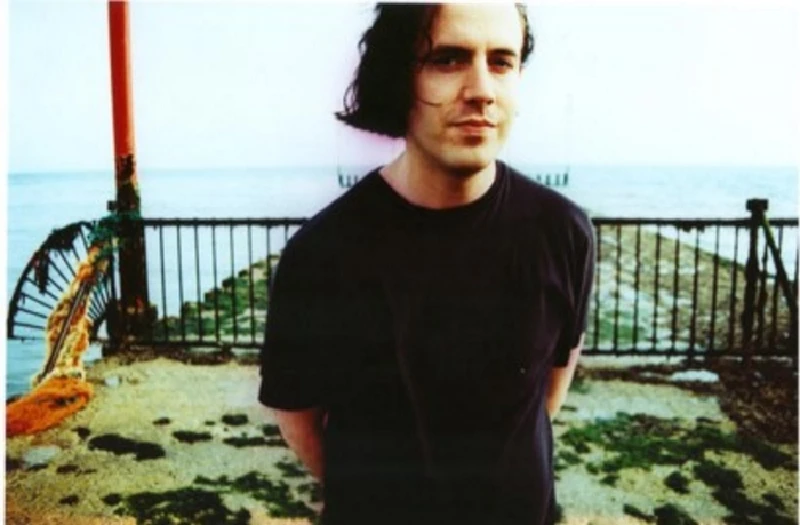
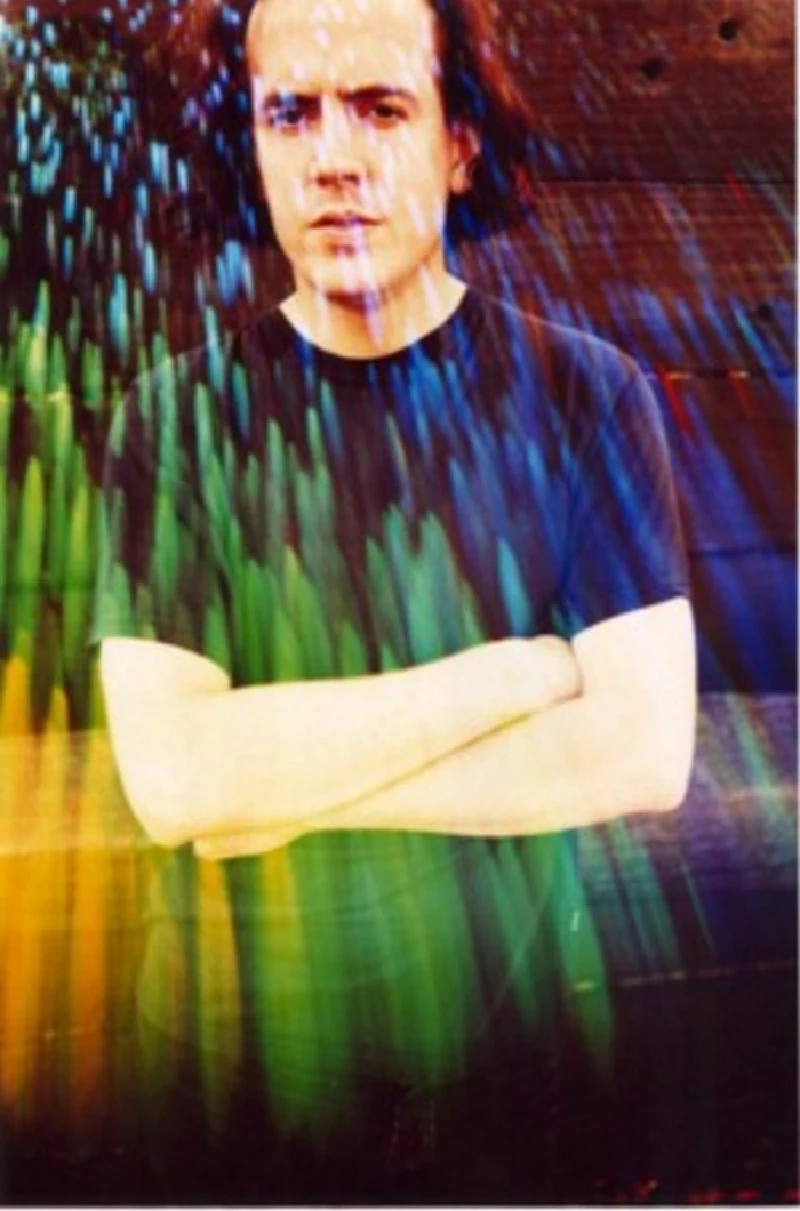
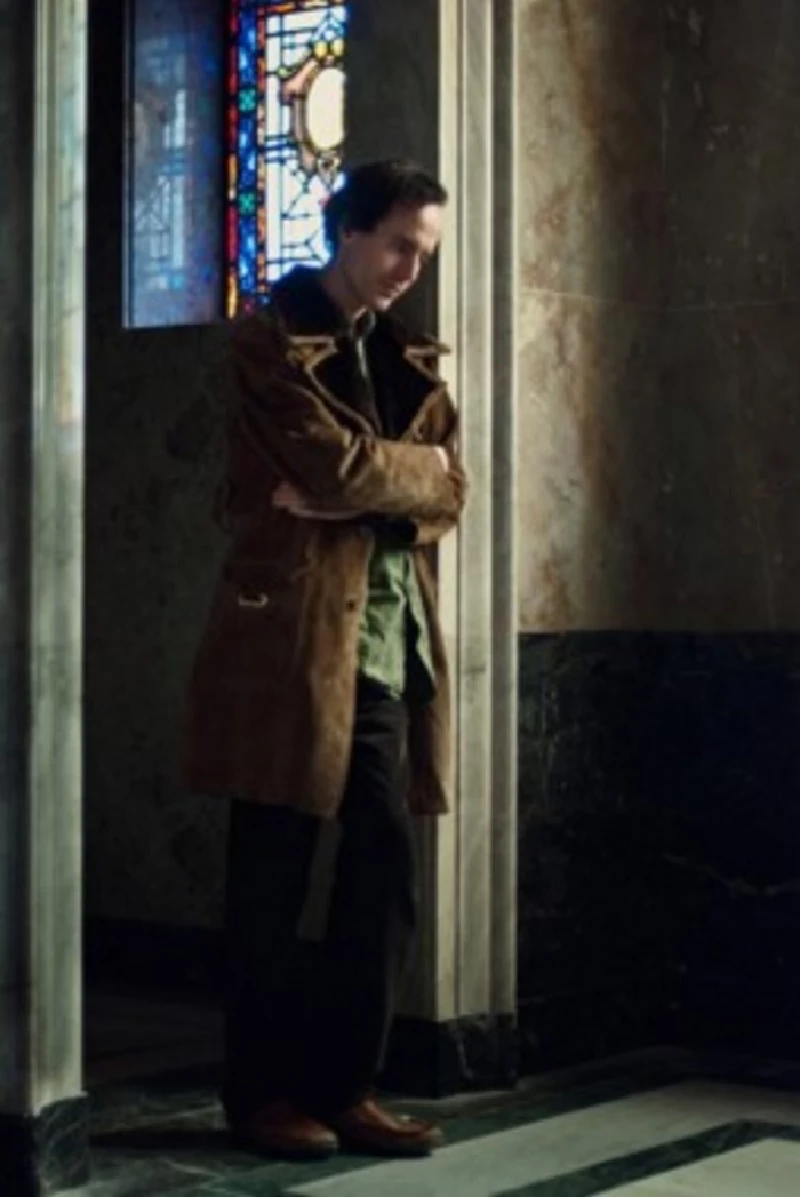
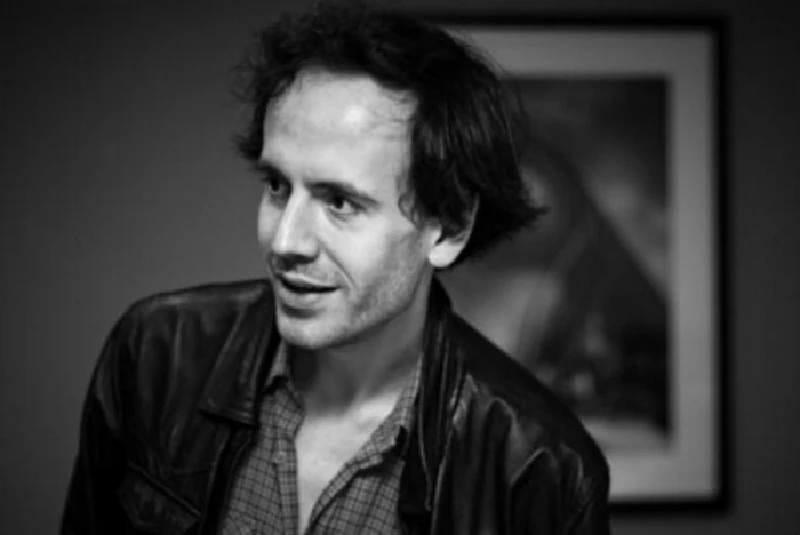
live reviews |
|
Social, London, 30/4/2008 |
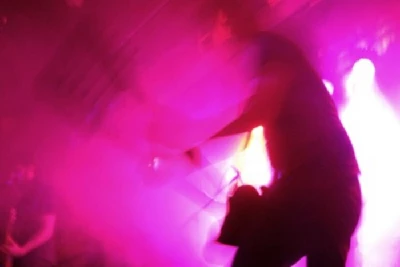
|
| At the Social in London Anthony Strutt enjoys two nights put on by excellent shoegazing label Sonic Cathedral, the first featuring Maps and Ulrich Schnauss, and the second headlined by loud American trio, A Place to Bury Strangers |
reviews |
|
Missing Deadlines: Selected Remixes (2010) |
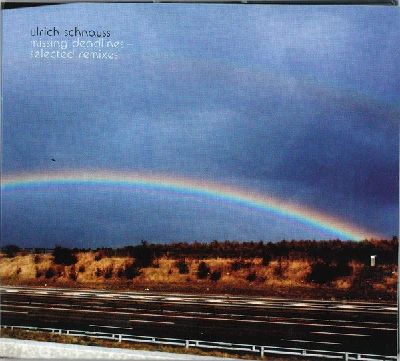
|
| Superb collection of remixes from shoegaze-influenced German musician and producer, Ulrich Schnauss, which includes tracks from Howling Bells, Asobi Seksu, Rachel Goswell, Mark Gardner and Mojave 3 |
| Goodbye (2007) |
most viewed articles
current edition
Carl Ewens - David Bowie 1964 to 1982 On Track: Every Album, Every SongBathers - Photoscapes 1
Colin Blunstone - Thalia Hall, Chicago, 16/7/2025
John McKay - Interview
Armory Show - Interview with Richard Jobson
Visor Fest - Valencia, Spain, 26/9/2025...27/9/2025
Billie Eilish - O2 Arena, London, 10/7/2025
Bathers - Photoscapes 2
Editorial - July 2025
Sir Tim Rice - Interview
previous editions
Heavenly - P.U.N.K. Girl EPOasis - Oasis, Earl's Court, London, 1995
Trudie Myerscough-Harris - Interview
Pixies - Ten Songs That Made Me Love...
Simon Heavisides - Destiny Stopped Screaming: The Life and Times of Adrian Borland
Beautiful South - Ten Songs That Made Me Love...
Prolapse - Interview
Boomtown Rats - Ten Songs That Made Me Love....
Blues and Gospel Train - Manchester, 7th May 1964
Donovan - Ten Songs That Made Me Love...
most viewed reviews
current edition
Amy Macdonald - Is This What You've Been Waiting For?Sick Man of Europe - The Sick Man of Europe
Alice Cooper - The Revenge of Alice Cooper
Phew, Erika Kobayashi,, Dieter Moebius - Radium Girls
Lucy Spraggan - Other Sides of the Moon
Blueboy - 2
Cynthia Erivo - I Forgive You
Davey Woodward - Mumbo in the Jumbo
Lapsley - I'm a Hurricane, I'm a Woman In Love
Philip Jeays - Victoria
Pennyblackmusic Regular Contributors
Adrian Janes
Amanda J. Window
Andrew Twambley
Anthony Dhanendran
Benjamin Howarth
Cila Warncke
Daniel Cressey
Darren Aston
Dastardly
Dave Goodwin
Denzil Watson
Dominic B. Simpson
Eoghan Lyng
Fiona Hutchings
Harry Sherriff
Helen Tipping
Jamie Rowland
John Clarkson
Julie Cruickshank
Kimberly Bright
Lisa Torem
Maarten Schiethart